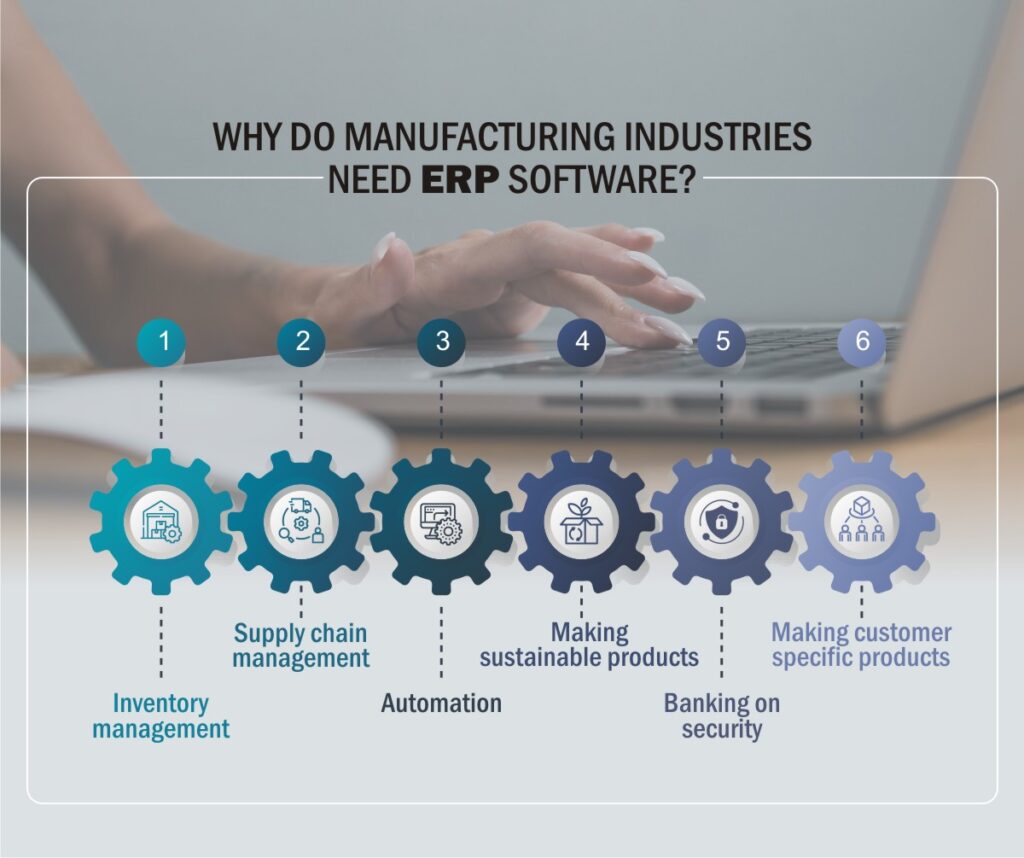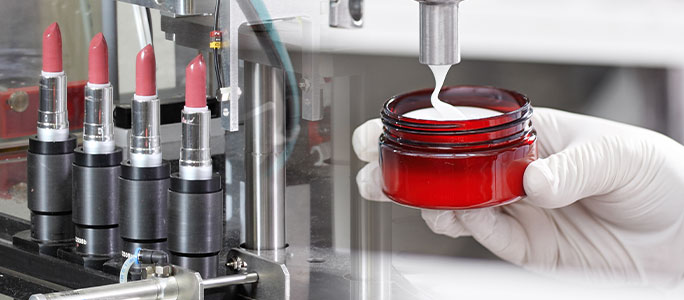
The UK manufacturing industry plays a vital role in the UK economy. Nearly 9.4% of total UK economic output and around 51% of UK export is generated by the manufacturing industry. The manufacturing sector contributes around £192 billion to the UK GDP.
As we stand in the middle of 2024, the UK manufacturing industry is going through a sinusoidal pattern. There is a sign of improvement in the domestic manufacturing market, but there are a lot of factors which are hampering uptrends in the industry. These challenges are directly impacting the bottom line of manufacturing sector. Some of these challenges are like:
Supply Chain Issue–
Supply Chain disruption in the UK can be very complex. High transport costs, Brexit trade barriers, impact of two major wars in the world- Ukraine-Russia and Israel-Palestine war, Houthi attacks, collapse of Baltimore bridge etc. have largely disrupted supply chain.
Material shortage, increased shipping costs, delay in deliveries, these and many other disruptions impacted the entire world, and the UK manufacturing industry is not an exception.
Labour Shortages–
There has been a constant shortage of labour in the UK. Aging workforce, new immigration rules post Brexit, and shortage of skilled labour are among the most dreadful reasons. This has led to business inefficiencies, regulatory non-compliances, quality & competency issues and much more.
Environmental Responsibility–
Manufacturers have never been under such pressure to reduce their environmental impact. They are bound take measures which can reduce their negative impact on the environment. Measures like recycling of used resources, developing and relying on more sustainable energy sources and much more. These measures involve allocation of money and resources.
With each passing year, pressure on the manufacturing industry to reach Net Zero by 2050 is being intensified.
Cyber security threats-
As the world is becoming more digitalised, susceptibility of cyber-attacks has increased. Manufacturers are more prone to these attacks plus trojans and therefore, they must be more vigilant.
Shifting consumer preferences-
Consumers are becoming more and more aware these days and therefore they want to know the journey of a product before purchasing. They are socio-economically more aware which puts extra pressure on manufacturers to make eco-friendly products.
Besides, since the world has shrunk to 6.7’’ size of mobile screens, consumers are more demanding in terms of variety, colours, ingredient etc.
Manufacturers in the UK must take care of their consumers to stay relevant and competent.
Why do manufacturing industries need ERP software?

An ERP system for manufacturing industry serves as a business management tool which acts as a central nervous system for an organisation. It collaborates with all the departments of the organisation and digitises various processes.
Here are the areas where ERP for manufacturing can be useful:
Inventory management –
Manufacturing ERP software provides details of inventory- the ingredients, raw materials, WIP, finished goods, etc., accurately. This helps organisations to plan orders in timely and in economical manner to avoid stock-outs and other nasty consequences of inaccurate inventory control.
Inventory management not only facilitates the identification of materials by proper classification, but also ensures that they are stored in the right place at the right time and in right conditions.
The software easily manages inter-warehouse and intra-warehouse material movement and finds out precise inventory cost.
ERP software for manufacturing company can avoid material scarcity by sending out notifications when inventory level of an active material goes below a threshold level, thus, maintaining optimum level of active material in the inventory.
Supply chain management–
ERP software for manufacturing helps to manage each stage of the supply chain – from gate-in to gate-out. Let us discuss various stages in subsequent paragraphs.
Procurement-
Procurement is the most crucial part of a supply chain. Optimized procurement enables manufacturers to produce and deliver in time. The manufacturing ERP software systems calculates demands generated through various sources and evaluates if raw material needs to be procured to carry out production without interruption.
If the need arises for procurement of raw materials, the most suited vendor is selected from the pool of certified vendors, based on various factors like lead time, quality of material, quantity it can deliver, rates, etc.
The system automatically generates purchase order basis sales order and available inventory. This process speeds up the procurement process and ensures that raw material reaches to the manufacturer in time and production is not affected.
Production–
Production is a very complex process. It involves analysis of demands, product development, planning, scheduling and manufacturing. The system can analyse various demands and plan to ensure uninterrupted production.
After suggesting a precise plan, ERP software for process manufacturing comprehensively facilitates all manufacturing activities, from batch creation to ticketing, batch issuing, tracking work in progress, inspecting production, closing batches, and ultimately conducting quality checks on the output.
Some well-known ERP software in UK like BatchMaster ERP, possess various capabilities like batch sizing, material substitution, part closure for dispatch, yield analysis, etc., which makes it a preferred choice among process manufacturers.
Deliveries–
The manufacturing ERP helps in ensuring timely deliveries and meeting customer deadlines. It streamlines order processing, tracking, shipment and fulfilment by centralising order management functions. By providing real-time visibility into order status it helps in managing customer orders efficiently.
It assists to generate invoices, pick lists, pack slips, bill of lading, certificates of analysis etc.
The ERP software for manufacturers can help calculate the shipping cost associated with each shipment. It manages return processes, including generation of return document, return shipping, financial and inventory updates.
Many ERP software can integrate with CRM and can track delivery related queries, take feedback, resolve complaints and facilitates a healthy relationship with customers.
Quality & Compliance–
Upholding quality is an intrinsic factor for a healthy supply chain. A contemporary process manufacturing ERP software with sophisticated quality assurance and quality control module tie together all your production processes and quality functions like NC, inspecting incoming raw materials before it lands in warehouse, checking quality of good being produced, and more.
It offers liberty to take full control over inspection and define specific inspection attributes and plans. Varied quality tests can be applied on samples drawn through various different ways (100% sampling, Beta method, random etc.) and their results can be measured in numeric/alphanumeric/pass/fail way.
To ensure that all processes are meeting the set standards, the software provides built-in compliance features that help abide by such as cGMP, Bio-terrorism, FDA, and more.
Moreover, a manufacturing ERP software for small businesses gives access to real-time data to help you track materials and products throughout the supply chain and detect defects early.
Automation-
For a counterattack on labour shortage problem, manufacturing ERP system empower manufacturers with the power of automation.
It eliminates the need of manual data entry by automating data capture and storage. This reduces errors, saves time, and enables accurate tracking of inventory, orders, production processes and financial data.
It also automates allocation of raw material for batches and inventory to fulfil customer orders.
The software can automatically generate picking, packing list, generate shipping labels, do cycle count, and perform various other tasks which if done manually or through spread sheets will be erroneous and resource exhaustive.
ERP automation can trigger notifications and generate reports. For instance, if a payment is received, the system can update the financial records and send a notification to the relevant department.
Automation systems can handle exceptions and errors. If a rule cannot be executed due to an issue or inconsistency, the system can trigger alerts for human intervention.
Robots and ERP can do magic in warehouse management. Robots can be programmed and integrated with ERP to perform tasks in warehouse without requirement of manpower.
Making sustainable products–
Here are some areas where robust manufacturing ERP can help in catalysing sustainable initiatives of manufacturers:
Resource optimization–
ERP systems provide visibility across the supply chain. This visibility helps producers find areas to reduce waste, increase resource efficiency, streamline processes, identify inefficiencies, and reduce carbon footprints.
Right-sizing–
To produce right quantity of goods, a manufacturing ERP solution assists in ordering adequate amount of raw material. This capability eliminates inventory storage burden and resources involved, therefore reducing its environmental impact.
Reporting capabilities–
Businesses in the UK need to measure and report on their environmental and social impacts. ERP systems for manufacturing can generate a range of KPIs to support that process and a reliable data trail that allows business leaders to monitor performance.
Decision making–
A manufacturing ERP helps in data-driven decision making. By centralising data across various departments and by providing analytics, ERP system provides insights into their environmental efforts and help to identify areas of improvement.
Innovation-
As a torch bearer of sustainable product producer, an organisation can innovate by using various ingredients which put less pressure on eco-system.
The ERP software possesses capability to allow ingredient replacement in the formulation without many adjustments. This capability fosters new product development which are more environment friendly.
Banking on security–
ERP for manufacturing industry offers various barriers to unauthorised access of data. One can apply read/write access to the desired user. Conditional and gated entry make data secured as only authorised personnel can access the data.
The software maintains detailed activity tracking that records all users’ activities within a system. The activity tracking captures information like number of attempts, data modification, system configuration etc. By monitoring audit trails, organisations can investigate any unauthorised and suspicious activity.
When it comes to cloud ERP, the software provides enhanced security to cyber threats and trojans. The data is secured at various server on different geographical locations, ensuring full back up support in case of emergencies.
Besides data security, workforce security is also important. Manufacturing ERP software allows to attach SOPs with each process, giving clear-cut instructions for steps to follow and avoid accidents.
The software assists in managing hazardous wastages and helps to classify various toxic and hazardous materials for effective disposal to ensure safety of people handling and working with these materials.
Making customer specific products– Customer demands for products change dramatically, putting manufacturers in a difficult position. Businesses need to have flexibility to quickly adapt production plans, raw material purchases etc. to meet changing demands.
A ERP software for manufacturing can easily track real-time inventory level data, make alterations in production plan and handle supply chain disruptions to match up the changing demands.
With the software, factories can plan capacity, change material procurement, monitor expenses, and optimise resource utilization.
ERP software can facilitate new product development to change product line as per the trends or to offer innovative products to its customers.
Concluding thought:
Although the UK manufacturers have myriad of challenges, but lot of issues can be tackled successfully with manufacturing ERP. By deploying a trustable ERP software, the organisations can churn out greater efficiency and generate more ROI.
In the leagues of trusted manufacturing ERP software, BatchMaster ERP is one of the most reputed and respected ERPs for process manufacturers.
It not only has helped various manufacturers across the world to solve their manufacturing related issues, but also has facilitated them to improve their product quality, efficiency, and resource management. The improvement in above factors have shown a positive impact on the bottom line of these organisations.
To discuss how BatchMaster can be helpful for your manufacturing organisation, please feel free to get in touch with our experts on sales@batchmaster.co.in.






